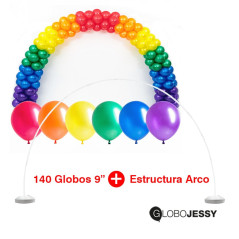
Corazon con estructura de globos para boda # 29 | Estos corazones con globos son muy populares en bodas o fiestas para el 14 de febrero, ademas que son muy fáciles de

como hacer un arco de globos - decoracion con globos - arcos de globos - YouTube | Arco de globos, Hacer arcos, Globos

como hacer un ARCO DE GLOBOS ( sin estructura) - arcos de globos - balloon arch - Gustavo gg - YouTube en 2022 | Arco de globos, Arco de globos facil, Hacer arcos

Focus - 🎈 COMO juntar GLOBOS para HACER UNA PARED DE GLOBOS? ahorra material / nueva tecnica | Facebook | By Focus | Te enseño a juntar columnas duplet para hacer tu




















